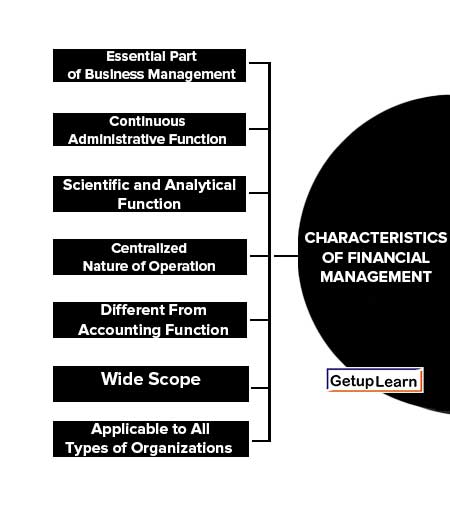The term financial management has emerged from the generic discipline of management. In order to understand financial management, it is better to start with an understanding the term management. Management, simply put, is all about securing the optimal use of the resources at the disposal of the firm towards the attainment of some predetermined goals.
These resources are of many kinds such as human capital, production machines, distribution channels, etc. Resources are put under the charge of respective departments which have the responsibility of their management and control. Each department contributes towards the organizational objectives by effectively managing the resources they are controlling.
Many terms such as capital, funds, cash flow, money, etc. are used synonymously and interchangeably to describe financial resources. The finance department of the organization is responsible for the financial management of the firm, which it does through the means of financial decision-making.
Table of Contents
Characteristics of Financial Management
These are the characteristics of financial management:
- Essential Part of Business Management
- Continuous Administrative Function
- Scientific and Analytical Function
- Centralized Nature of Operation
- Different From Accounting Function
- Wide Scope
- Applicable to All Types of Organizations

Essential Part of Business Management
Financial management is an integral part of organizational management. Each and every department in an organization has to prepare a budget and provide it to the top management for designing the capital structure of the firm and identifying the sources of raising the funds.
Continuous Administrative Function
Management of funds is a year-long practice. The departmental heads need to prepare estimates about the requirements of the funds and plan the use of resources accordingly.
Scientific and Analytical Function
Robbins has treated financial management as both sciences as well as art and said, “Managing a firm’s finance is both art and science.
It requires not only a feel for the situation and analytical skills but also a thorough knowledge of the techniques and tools of financial analysis and the knowledge to apply them and interpret the results.
Centralized Nature of Operation
The financial management or finance function is basically a centralized nature of all functional areas of management because the objectives of the business can be achieved more effectively by centralization of the finance function. Therefore, decentralization of the finance function is not desirable like other functions of the enterprise.
According to Vance “ Functional areas such as marketing and production are decentralized in the modern industrial concerns but financial coordination and control are achieved through centralization.” The finance function in a business can be compared to that of the human heart whose basic nature is centralized.
Different From Accounting Function
Most of the persons regard accounting and finance as the same thing due to the use of many terms and financial records but the finance function is different from the accounting function.
Accounting is basically involved with data accumulation while finance is primarily involved with data analysis for use in decision-making.
Wide Scope
According to Raymond and Robert, the scope of financial management is very wide and complex. Like old days the scope of financial management is not confined to raising capital to meet the long-term requirements of the enterprise but, to acquiring funds for the short and long-term needs of the enterprise.
Proper allocation of funds and their optimum utilization are also within its scope. Moreover, it is also responsible for accounting, capital budging, audit, cost control, cash and credit control, and other routine function.
Applicable to All Types of Organizations
Financial management is applicable to all types of manufacturing and service organizations whatever may be their size, nature, ownership, and control. It is wrong to say that financial management can be applied only to those organizations whose basic aim is to earn profits.
Raymond has aptly said, “The term financial management may be applied to any kind of undertaking or organization regardless of its aims or constitution”.
FAQs About the Characteristics of Financial Management
What are the characteristics of financial management?
The following are the characteristics of financial management:
1. Essential Part of Business Management
2. Continuous Administrative Function
3. Scientific and Analytical Function
4. Centralized Nature of Operation
5. Different From Accounting Function
6. Wide Scope
7. Applicable to All Types of Organizations.



